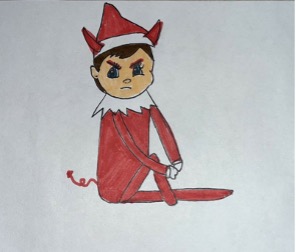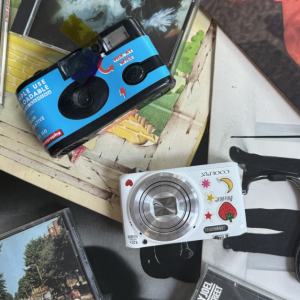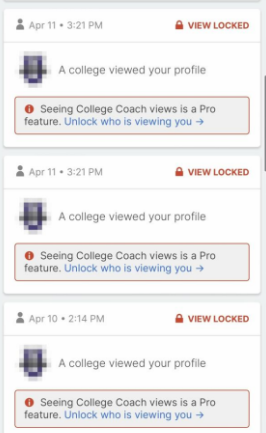Elf on the Shelf: do they affect young minds?

The Elf on The Shelf in its true form judging kids for making a mistake during the winter season.
December 19, 2022
Picture this; I wake up next to my sisters sometime in mid-December. My mom tells us to get out of bed and get ready for school. We all run down and push each other out of the way as we rush around looking at every piece of furniture in every room. After five minutes we hear “I found it! I found Chippy!”
As the day continued my sisters and I would fight and banter. During the month of December, however, my mom could make everyone stop just by saying, “Girls remember Chippy’s watching! He will tell Santa and you won’t get your gifts!” This parenting tactic is known as “The Elf on the Shelf.”
Parents bribe their children into being good kids by promising that the elf will return to the north pole and tell Santa all about them. Hypothetically, this would make Santa’s time deciding how many gifts a kid should receive simpler. Originally the “Elf on the Shelf” was created by a mom with her daughter as a fun game of hide and seek, but it has developed into something worse and tough on children’s mental psyche.
Children are scared into thinking that they must be good kids around the elf otherwise their Christmas hopes and dreams will be dashed. Knowing Santa is always watching can create fear and anxiety linked with bad behavior in kids from a young age. This can lead to low self-esteem or panic attacks when messing up later in life.
As a young adult I am told that it’s fine to make mistakes and not be too worried about messing things up. But children far younger than me are fearful of their elf tattling on them which can stifle kids’ ability to talk openly and freely. Instead of an elf that manipulates kids’ mental state with a judging stare why not simply have the elf around for fun and no stress!
Often parents overlook the fact that elves might be harming their kids, so now is the time for parents to retire their hide and seek duties and permanently put the elf away on the shelf.






